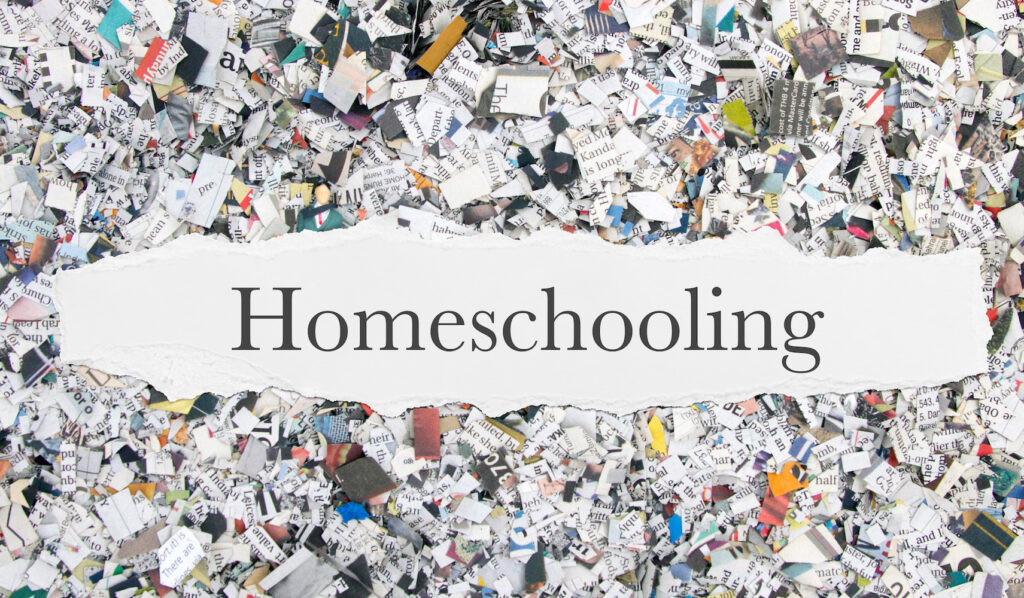Commentary from Kansas City Star columnist on homeschool meeting showcases media bias, misinformation
As some journalists bemoan the public’s increasing mistrust in their coverage, they do themselves no favors by publishing commentary filled with erroneous, misleading statements about whole…

As some journalists bemoan the public’s increasing mistrust in their coverage, they do themselves no favors by publishing commentary filled with erroneous, misleading statements about whole communities without checking facts.
One spectacularly flagrant example involves a Sept. 6 opinion piece by the Kansas City Star’s Melinda Henneberger, “’We do it so wrong,’ Kansas lawmakers disparage public education to home-schoolers.”
Henneberger’s outrage starts over a legislator who recently told homeschool families, “Your kids are not just numbers in a formula to get more funding.” She calls this showing “disdain” for public schools, an unfair “blanket indictment,” and a “calumny” against public school teachers.
However, this misrepresents the legislator’s clear criticism of an impersonal, taxpayer-funded bureaucratic system, not individual teachers.
By the end of the article, Henneberger has already revealed she tacitly agrees with the formula-funding mindset by worrying aloud how homeschoolers are costing public schools money.
“In rural districts in particular, even the loss of a small number of students can be devastating,” she laments, failing to explain why this should matter if those families are finding better educational value elsewhere.
Just like she attended a Catholic elementary school and three Catholic universities, why should she fret if more families, rural or otherwise, are quietly withdrawing from public schools?
In another example regarding creating lesson plans, Henneberger takes issue with Sen. Beverly Gossage’s reported statement: “We do it so wrong in the classroom.” But as a former classroom teacher for eight years, Sen. Gossage has considerable experience Henneberger shouldn’t be so quick to dismiss.
Gossage’s statement could mean classroom lesson plans allow little or no flexibility to meet individual student needs, or teachers must generally use curriculum mandated from above. Both are fair, not disdainful, criticisms.
Henneberger creates further inaccuracies when she describes Kansas homeschools as “unregulated.” A simple visit to the Kansas Department of Education’s website disproves this.
Kansas law requires teachers in a homeschool to be competent and provide about the same number of days of instruction as public schools. The Home School Legal Defense Association (HSLDA) has followed homeschool law closely in this state, as well as across the nation.
“Having been involved in court cases on the subject, I can affirm that judges are aware of those requirements,” HSLDA attorney Scott Woodruff writes of Kansas homeschools.
Henneberger also argues the state doesn’t track whether homeschoolers are “doing it right.” Again, this misleads readers on more than 40 years of homeschooling’s proven accomplishments.
Public universities constantly recruit homeschoolers. As a homeschool graduate, I received numerous invitations to apply to universities based on my academic test scores. My overwhelmingly positive experience at the University of Kansas – completing two degrees with honors in four years – further proved homeschooling had prepared me to thrive in higher education.
The state employs many graduates of homeschool programs. I can’t think of any agency requesting the Legislature to add requirements because these alumni were unprepared for work. Demands for greater “accountability” don’t come from those with constant, firsthand knowledge of homeschool graduates.
A steadily diminishing number of states check whether homeschoolers are “doing it right” by mandating submission of tests, but these only serve to showcase homeschooling’s success.
For example, after many years of mandating Arkansas homeschool students take and submit test scores from the same tests public school students take, the Legislature abolished all testing requirements.
Henneberger also quotes a legislator as opposing any effort to mandate home visits. The number of states or localities mandating home visits always remained very small and rarely enforced because of Fourth Amendment protections. Maryland, the last holdout, abolished its version of this requirement several years ago.
She rhetorically asks: “Why do home-schooled students not deserve the same oversight and protection that kids in more traditional settings have?”
Well, the way public schools provide oversight for their current students doesn’t inspire parents with confidence.
In Kansas, a third of students test below grade level in reading and math. In addition, the site wisevoter.com pegs the illiteracy rate in Kansas at 16.9%.
Is Henneberger asking us to believe the same overseers who monitor public schools – required since public money is being spent – will suddenly become effective if they get responsibility for monitoring homeschools as well?
She says child abusers “tend to isolate their victims,” insinuating homeschool families do the same. However, numerous studies have shown little evidence of child abuse happening at any statistically higher or lower rate among homeschool students compared to those in public or private school.
In addition, homeschool students consistently score higher in social competencies than their public school counterparts – further destroying the stereotype of isolated victims.
In short, Henneberger’s column encapsulates the misinformation and bias long suffered by anyone who dares question the mainstream media’s talking points. Henneberger argues she has nothing against homeschoolers, yet her writing belittles their educational sacrifices, misrepresents laws concerning them, and hints at a greater risk of child abuse without offering any evidence for such claims.
Public schools shouldn’t expect to have a monopoly on education. Many homeschoolers, myself included, do not want government funds for our private home education. If some families decide to leave the government system, no one – least of all journalists who attended private schools – should try to guilt or force them to stay.



